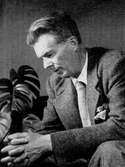Aldous Huxley Quote
So the journey is over and I am back again where I started, richer by much experience and poorer by many exploded convictions, many perished certainties. For convictions and certainties are too often the concomitants of ignorance. Those who like to feel that they are always right and who attach a high importance to their own opinions should stay at home. When one is traveling, convictions are mislaid as easily as spectacles; but unlike spectacles, they are not easily replaced.
Aldous Huxley
So the journey is over and I am back again where I started, richer by much experience and poorer by many exploded convictions, many perished certainties. For convictions and certainties are too often the concomitants of ignorance. Those who like to feel that they are always right and who attach a high importance to their own opinions should stay at home. When one is traveling, convictions are mislaid as easily as spectacles; but unlike spectacles, they are not easily replaced.
Tags:
travel
Related Quotes
About Aldous Huxley
Aldous Leonard Huxley ( AWL-dəs; 26 July 1894 – 22 November 1963) was an English writer and philosopher. His bibliography spans nearly 50 books, including novels and non-fiction works, as well as essays, narratives, and poems.
Born into the prominent Huxley family, he graduated from Balliol College, Oxford, with an undergraduate degree in English literature. Early in his career, he published short stories and poetry and edited the literary magazine Oxford Poetry, before going on to publish travel writing, satire, and screenplays. He spent the latter part of his life in the United States, living in Los Angeles from 1937 until his death. By the end of his life, Huxley was widely acknowledged as one of the foremost intellectuals of his time. He was nominated for the Nobel Prize in Literature nine times, and was elected Companion of Literature by the Royal Society of Literature in 1962.
Huxley was a pacifist. He grew interested in philosophical mysticism, as well as universalism, addressing these subjects in his works such as The Perennial Philosophy (1945), which illustrates commonalities between Western and Eastern mysticism, and The Doors of Perception (1954), which interprets his own psychedelic experience with mescaline. In his most famous novel Brave New World (1932) and his final novel Island (1962), he presented his visions of dystopia and utopia, respectively.
Born into the prominent Huxley family, he graduated from Balliol College, Oxford, with an undergraduate degree in English literature. Early in his career, he published short stories and poetry and edited the literary magazine Oxford Poetry, before going on to publish travel writing, satire, and screenplays. He spent the latter part of his life in the United States, living in Los Angeles from 1937 until his death. By the end of his life, Huxley was widely acknowledged as one of the foremost intellectuals of his time. He was nominated for the Nobel Prize in Literature nine times, and was elected Companion of Literature by the Royal Society of Literature in 1962.
Huxley was a pacifist. He grew interested in philosophical mysticism, as well as universalism, addressing these subjects in his works such as The Perennial Philosophy (1945), which illustrates commonalities between Western and Eastern mysticism, and The Doors of Perception (1954), which interprets his own psychedelic experience with mescaline. In his most famous novel Brave New World (1932) and his final novel Island (1962), he presented his visions of dystopia and utopia, respectively.
